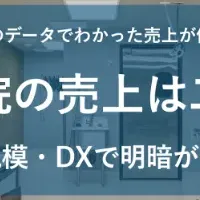
OLI Systems and SwRI Collaborate on NASA-Funded Research into Icy Worlds' Chemistry
OLI Systems and Southwest Research Institute: A New Frontier in Icy World Chemistry
In an exciting development for space exploration and astrobiology, OLI Systems has teamed up with the Southwest Research Institute (SwRI) under a NASA-funded initiative aimed at unraveling the mysteries of extreme extraterrestrial environments. This partnership marks a significant advancement in OLI's efforts to model chemical interactions in some of the most forbidding conditions found beyond our planet.
The collaboration is part of NASA's Habitable Worlds program, designed to enhance our understanding of icy moons and distant oceans where subsurface oceans may harbor conditions suitable for life. OLI Systems, renowned for its advanced water chemistry simulation capabilities, will refine its thermodynamic modeling tools to simulate the interactions between water, minerals, and dissolved compounds in environments characterized by high pressures, sub-zero temperatures, and varying salinity levels.
Such modeling is essential for identifying potential habitable zones and informing future space missions. The ability to create digital twins of these alien environments means researchers can directly simulate conditions that mimic those on icy moons, which is critical for astrobiological studies.
Dr. Andre Anderko, Chief Technology Officer at OLI Systems, expressed his enthusiasm for the collaboration, stating, "This partnership allows us to extend our expertise in chemistry modeling to one of the most thrilling frontiers—astrobiology. By refining our software to understand extreme extraterrestrial conditions, we provide scientists with powerful tools to simulate environments that were previously unreachable."
Broader Impacts on Space Exploration
The implications of this research extend far beyond astrobiology. As industries increasingly explore the potential for extraterrestrial resource extraction—including mining on icy bodies—accurate models of fluid chemistry and mineral solubility become pivotal. Understanding geochemical interactions will significantly contribute to extracting and processing extraterrestrial resources in harsh environments, paving the way for sustainable off-Earth operations.
In addition, the models developed through this partnership may also find applications in deep-sea exploration, geothermal energy development, and other industries that confront similarly extreme conditions.
OLI Systems is not new to the challenges posed by complex chemical systems. Their software has been instrumental in various industries, including corrosion prevention and water treatment, helping organizations manage and mitigate chemical challenges in critical operations. The enhancement of these capabilities to model extraterrestrial conditions showcases the versatility and transformational potential of their technology.
Looking Ahead: The Future of Chemical Simulation
With the potential to uncover new insights about our solar system, this NASA-funded project is a testament to the power of innovation and collaboration in the scientific community. As OLI and SwRI work together to improve the understanding of chemical behavior in space, the broader implications for science and industry are profound.
As Dr. Anderko aptly noted, the work of OLI Systems will not only enhance the understanding of life beyond Earth but also reduce the risks and costs associated with future exploratory missions. By investing in this crucial research, OLI Systems exemplifies its commitment to harnessing rigorous scientific foundations to address the most complex challenges in our universe. The results from this project are anticipated to reverberate through various fields, impacting our approach to both space exploration and Earth-based industries dealing with extreme conditions.
To learn more about OLI Systems and their innovative solutions in water chemistry simulation, visit olisystems.com or follow their updates on LinkedIn. As we stand on the brink of a new era in astrobiology and extraterrestrial resource exploration, OLI Systems continues to lead the charge towards unraveling the mysteries of our universe.
Topics Other)










【About Using Articles】
You can freely use the title and article content by linking to the page where the article is posted.
※ Images cannot be used.
【About Links】
Links are free to use.